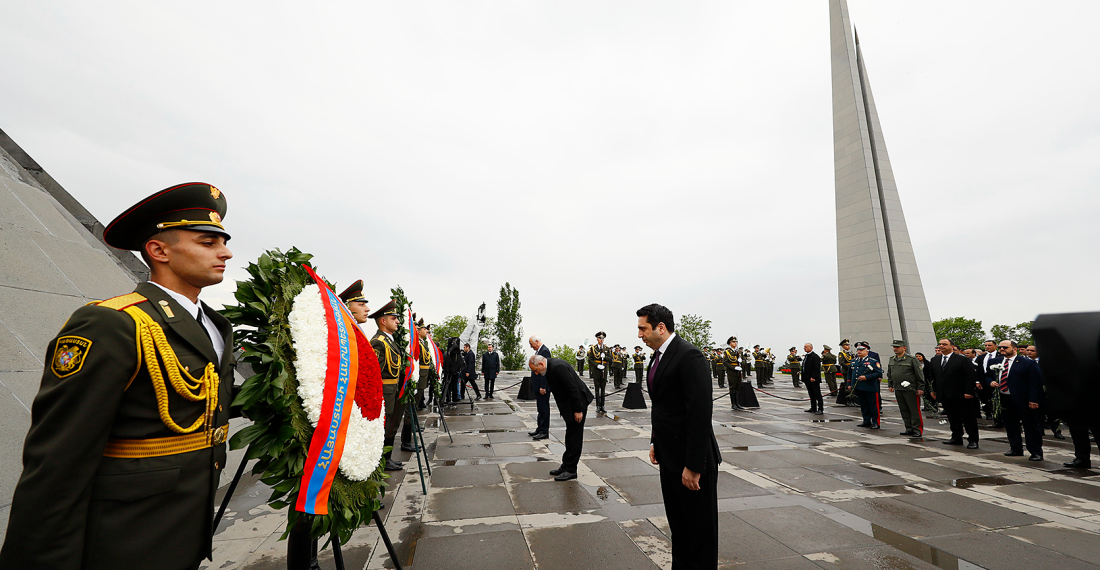Armenia is marking Genocide Memorial Day on Monday (24 April). It is a public holiday in Armenia and is marked in remembrance of the large number of Armenians killed in Anatolia in the last years of the Ottoman Empire in what many now recognise as a genocide.
The entrance to the genocide memorial in Yerevan was closed from 08.30am to 11am on Monday morning to ensure the safety of the state ceremonial event in which Armenian Prime Minister Nikol Pashinyan, President Vahagn Khachaturyan, and National Assembly speaker Alen Simonyan laid wreaths and flowers at the memorial.
The event was also attended by numerous MPs, ministers, some other officials, as well as staff of various embassies and ministries.
Throughout the day, it is expected that tens of thousands of Armenians will head to the Tsitsernakaberd Genocide Memorial for personal commemoration of the Armenian genocide.
On Sunday evening, the traditional evening torchlit procession from downtown Yerevan to the genocide memorial also took place.
source: commonspace.eu with agencies
photo: Prime Minister of Armenia







